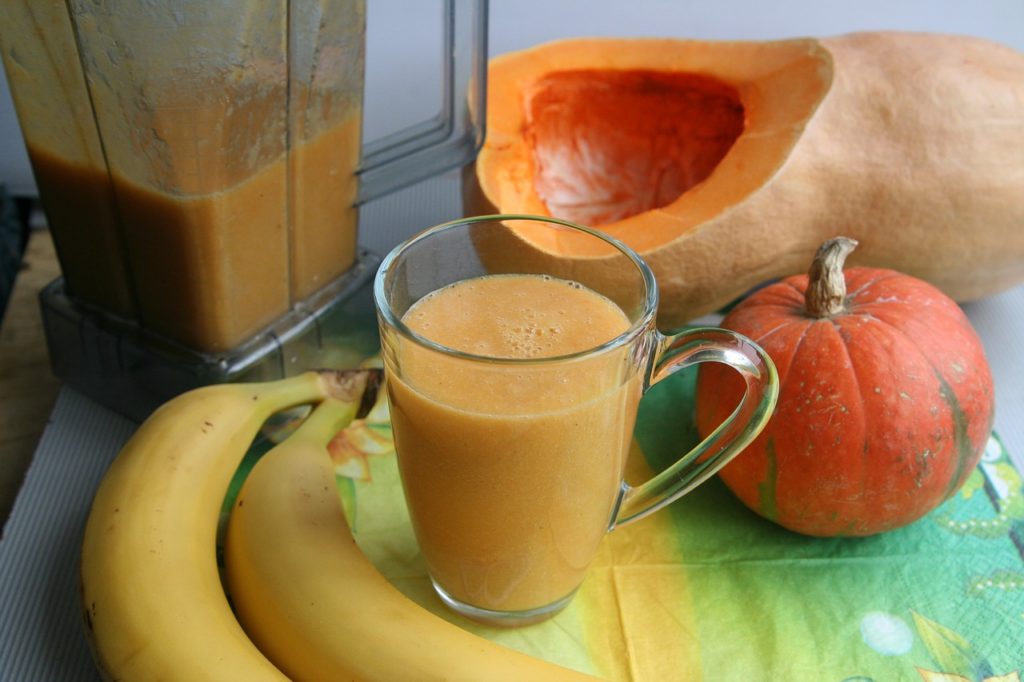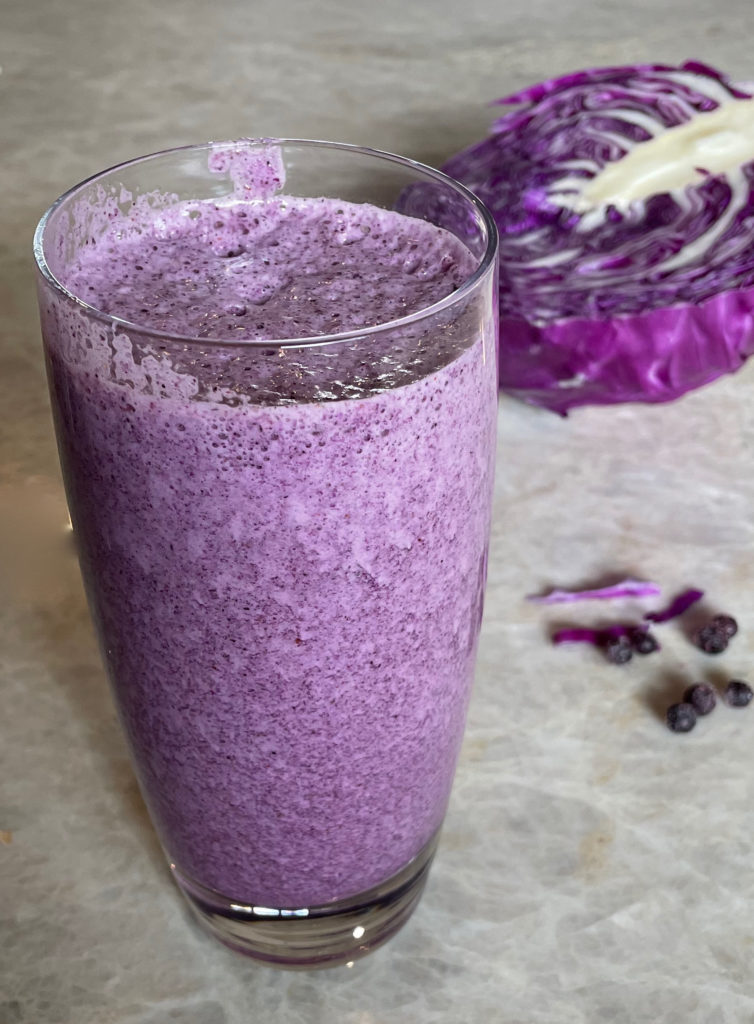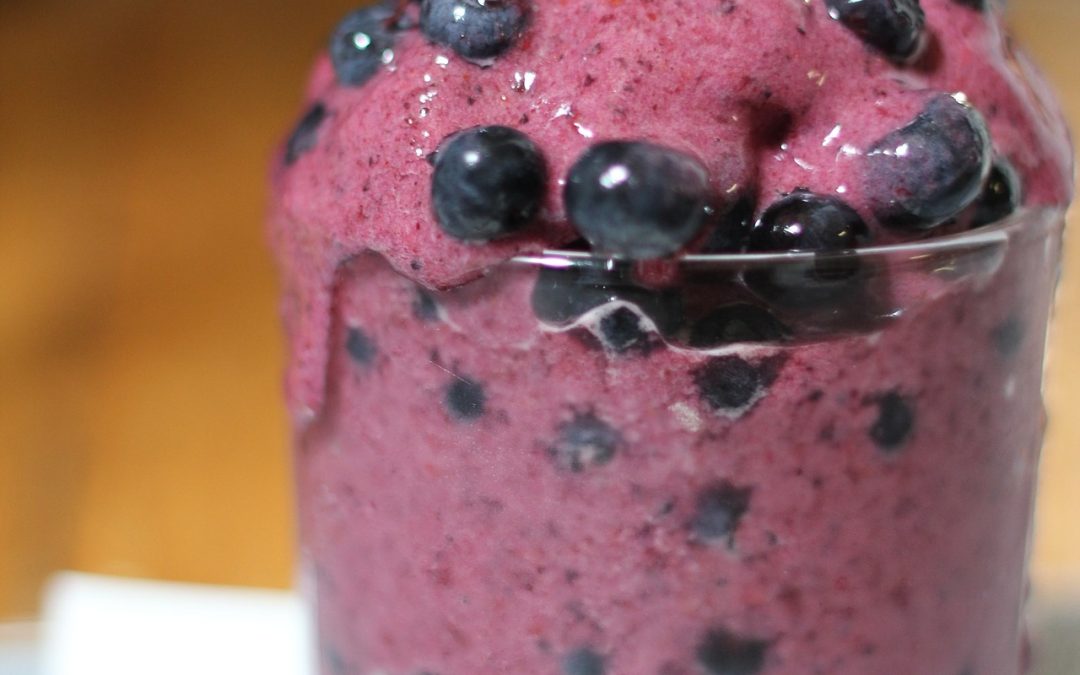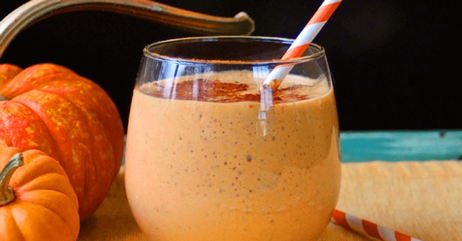Kombucha – the Superdrink
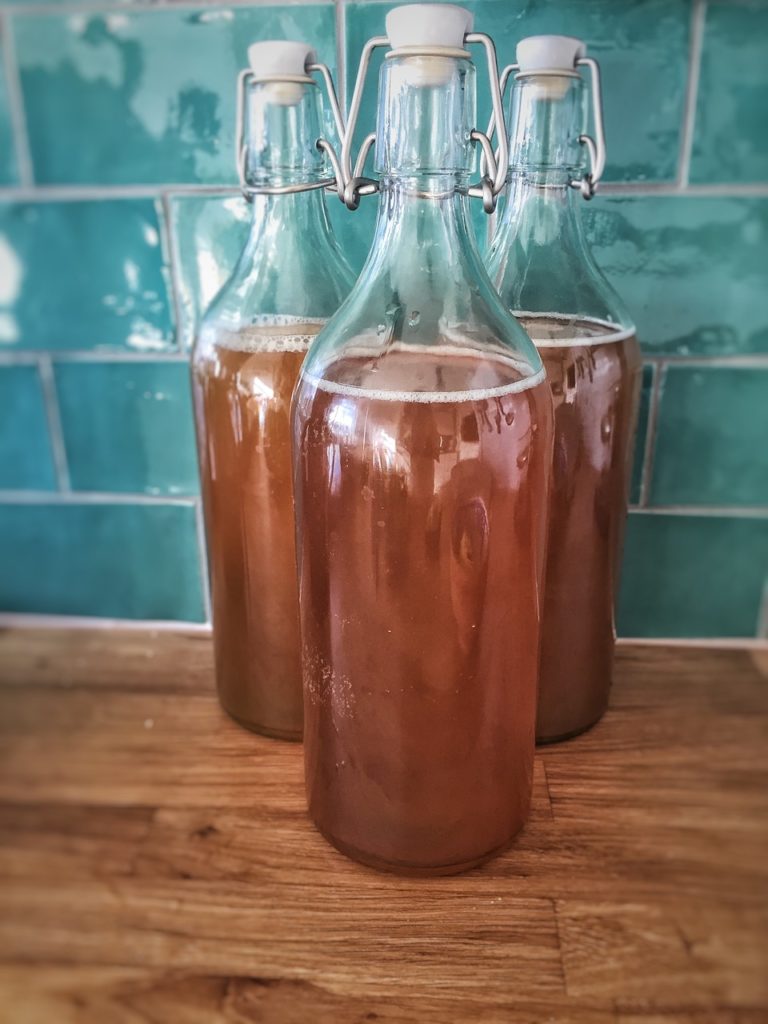
What’s slightly sweet, somewhat bubbly and a bit tangy? kombucha is a fermented tea drink whose healing reputation has been touted for centuries. It is said to be the drink that boosts immunity, gut bacteria, digestion, metabolism, heart health, and possibly even cancer! How can one drink do all that? And if it could… it would have to be a SUPERFOOD… or SUPERDRINK!
Is the reputation real? What does western science say?
Kombucha is made with a tea, sugar (which will be used up in the culturing process), and a SCOBY (Symbiotic Culture of Bacteria and Yeast) – and of course –time for fermenting. Mixing these ingredients together and waiting from a few weeks to a few months allows the sugar to break down into alcohol and organic acids (including carbon dioxide). The final product is a beverage that is sweet, tangy, bubbly, and contains probiotics, antioxidants, B vitamins, caffeine, and a small amount of alcohol.
For those that don’t partake in alcohol – this isn’t your drink. For the rest, kombucha does provide live strains of bacteria (probiotics) and antioxidants that may enhance your gut bacteria and improve immunity and digestion. It could enhance microbe function – of which includes metabolism, and heart health.
Cancer Benefits
A November 2020 study reviews other clinical studies and contends that Kombucha has anticancer activities as well by inhibiting cancer cells. The tea polyphenols may prevent gene alteration and propagation of cancer calls, while also promote cancer cell apoptosis (cell suicide). It may also alkalize a cancer patient’s blood pH in some cases. The components of kombucha tea (specifically vitamin C, glucuronic acid, polyphenols, gluconic acid, and lactic acid) may reduce the incidence of stomach cancer. While there have been many studies done with kombucha via non-human subjects (mice), there have been few human trials done – although… the drink has been in existence for centuries. The US FDA confirmed there is no harmful effect of kombucha on the human body.
Diabetes Benefits
The antioxidant activity of kombucha tea helps to neutralize free radicals that form due to normal aging and body processes. The free radical generation is not beneficial to the quality of health nor longevity of the body; so any component that helps neutralize this is considered a positive impact. Kombucha has been shown to be beneficial with antioxidant activities on illnesses like diabetes.
Antibacterial and Antifungal Activity
Kombucha tea has demonstrated the inhibitory performance against gram-negative and gram-positive bacteria, helicobacter pylori (peptic ulcer causing), Escherichia coli (diarrhea causing), & staphylococcus aureus among others.
Other benefits
The research talks about liver protection, and detoxification which could be beneficial with grout, rheumatism, arthritis, and kidney stones.
Other adverse effects
If Kombucha is not prepared correctly – home brewed but not right – there can be negative side effects including dizziness, nausea, allergic reactions, jaundice, and head/neck pain. Pregnant or nursing women should NOT drink kombucha nor any other alcoholic beverage according to the CDC. The immunocompromised (people with weakened immune systems)

